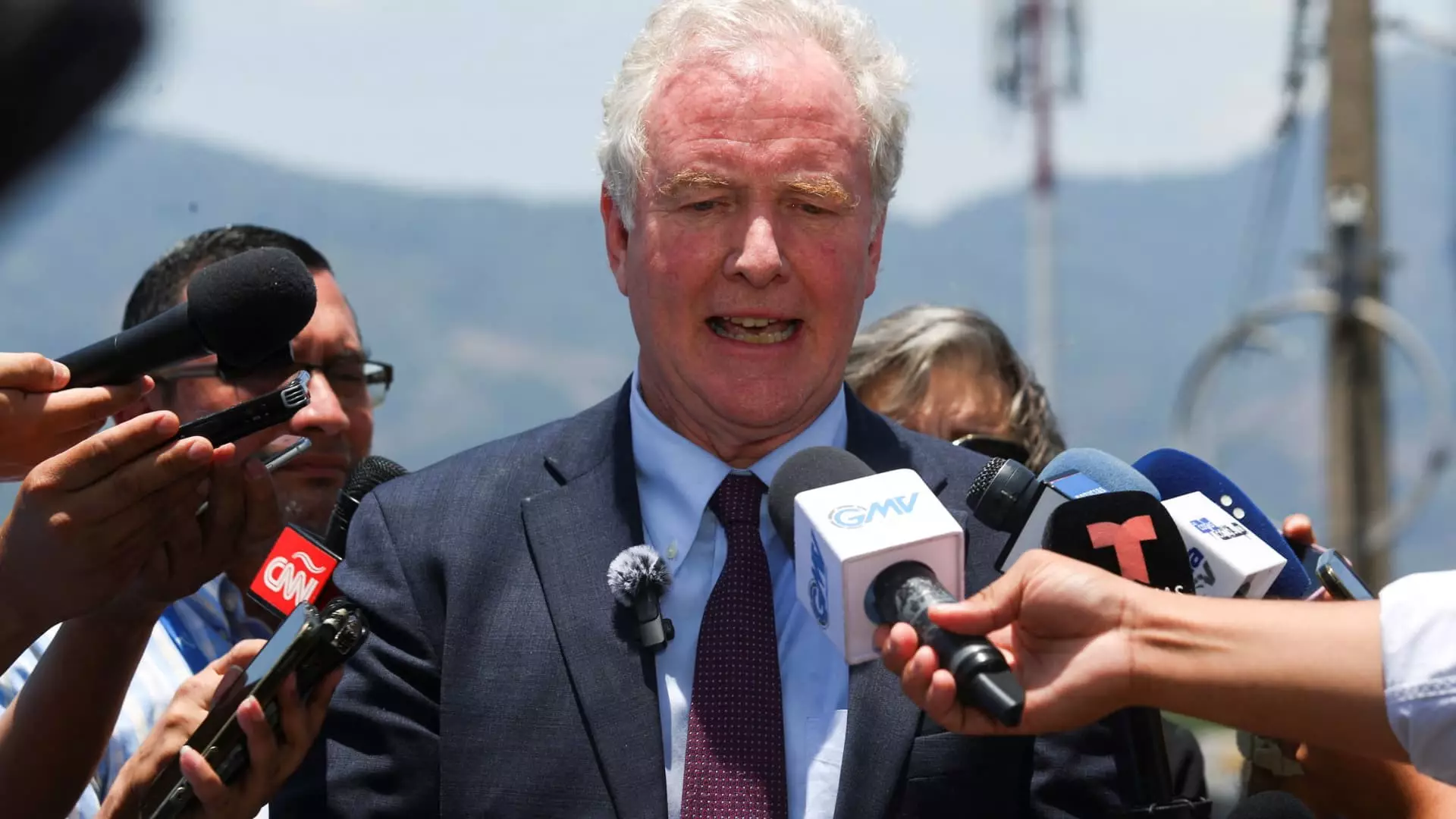Amid countless heart-wrenching stories of injustice hidden in our immigration system, the plight of Kilmar Abrego Garcia exemplifies both the fragility of bureaucratic protections and the resilience of the human spirit. Deported from the United States back to El Salvador in March, Abrego Garcia’s case is not merely a statistic; it serves as a stark reminder of how far we’ve veered from a humane immigration policy. U.S. Senator Chris Van Hollen’s recent visit to El Salvador to meet with Indirect victims of this tragic error crystallizes the urgency of addressing this abhorrent situation, turning the national spotlight on issues that have been shrouded in neglect for too long.
Systematic Failures and Miscalculations
The Trump administration’s deportation of Abrego Garcia raises critical questions about the competence and ethics of those in power. When the Supreme Court issued a ruling aimed at facilitating his return, one would assume that federal authorities would be guided by adherence to the rule of law. Instead, reports of a “cover-up” surrounding Abrego Garcia’s wrongful deportation create a landscape riddled with doubt. Such cavalier disregard for human lives should not be tolerated; it signals a system devoid of accountability, where the dangerous precedent of ignoring Supreme Court rulings could be set.
The fact that Van Hollen was denied entry to the detention facility—dubbed a terrorism confinement center—reveals a broader pattern of resistance to transparency. If government officials can simply block access based on arbitrary orders, we must ask ourselves what safeguards exist, if any, to protect individuals caught in a web of mismanagement and misjudgment.
The Struggles of Loved Ones Left Behind
The emotional toll of Abrego Garcia’s deportation goes beyond his own ordeal; it reverberates through the lives of his loved ones. His wife, Jennifer, stands at the forefront of this tragedy, fearing for her husband’s well-being while being denied any reassurance or communication. The fact that she has been cut off from her partner since his relocation should not only provoke outrage but demand immediate attention from all those who advocate for humane treatment of immigrants.
In a society purporting to uphold human rights, Jennifer’s struggles underscore the disconnect between the rhetoric of protection and the actual policies enacted in practice. Senator Van Hollen’s attempts to facilitate a phone call between the two only highlight the barriers imposed by the very authorities that are meant to safeguard citizens and residents alike.
Political Motivations and Ethical Stumble
The political ramifications of this case run deep, crossing party lines and invoking a moral dilemma that any conscientious citizen should grapple with. The insistence of Salvadoran President Nayib Bukele to refuse calls for Abrego Garcia’s return raises eyebrows, hinting at a potentially troubling alliance between parties that ought to be scrutinized. Are we witnessing a moment where political motivations overshadow basic human rights? It certainly appears that way, especially when political posturing takes precedence over compassion and justice.
The involvement of Maryland officials who are demanding “verifiable proof” of Abrego Garcia’s condition points to a necessary shift that must occur at all levels of government. The time has come to hold those in power accountable, particularly when their actions—or lack thereof—put lives at risk. This is more than a legal issue; it’s a moral one. The cries for justice must resonate through the halls of power, compelling an urgent reassessment of how immigrants and non-citizens are treated within our borders.
The Call to Action
As citizens, we must stand united against the failures illustrated by Kilmar Abrego Garcia’s situation. There are systemic changes that need to occur—requiring not only the restoration of human rights protections but also a realignment of our attitude toward immigration. As we bear witness to the erosion of these protections, it becomes imperative that we advocate for a policy framework reinforcing ethical treatment, transparency, and accountability.
This episode is a rallying call for legislative action, a movement to ensure that no family experiences the pain and uncertainty that Jennifer and Kilmar endure. Only through our relentless pursuit of justice and reform can we hope to ensure that human dignity remains at the forefront of our immigration narrative. Each story, like Kilmar’s, is not just a figure in a political debate but a reminder that we are tasked with safeguarding our humanity—one individual at a time.


Leave a Reply